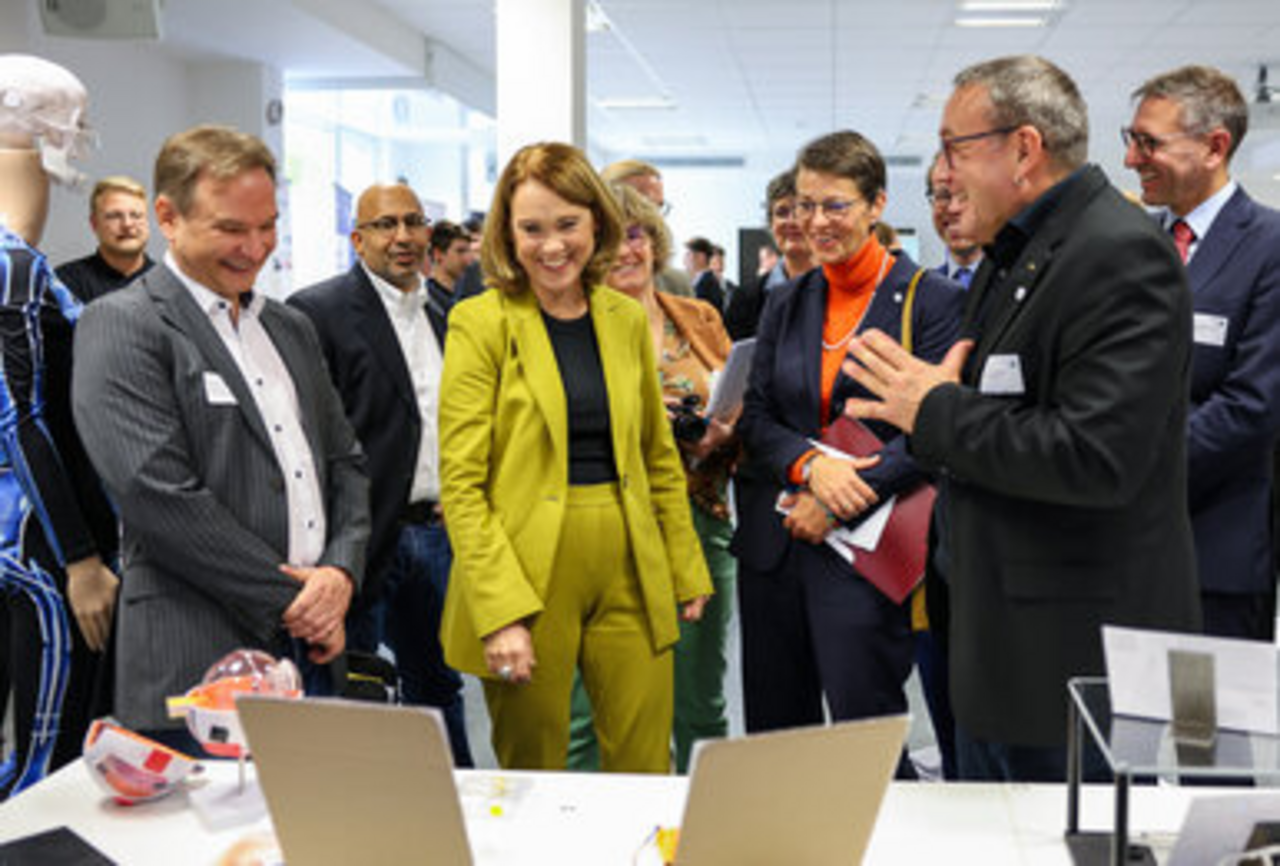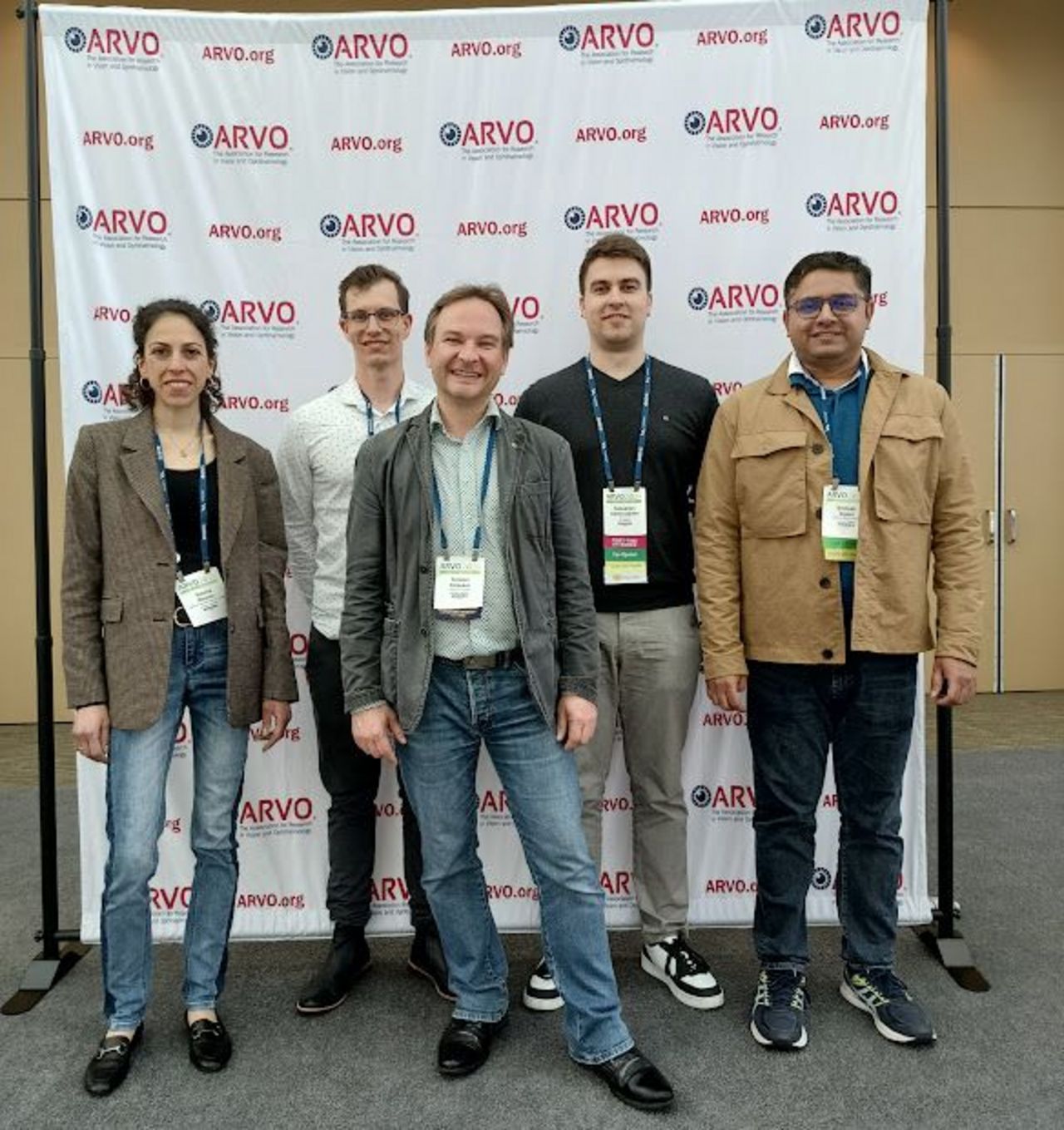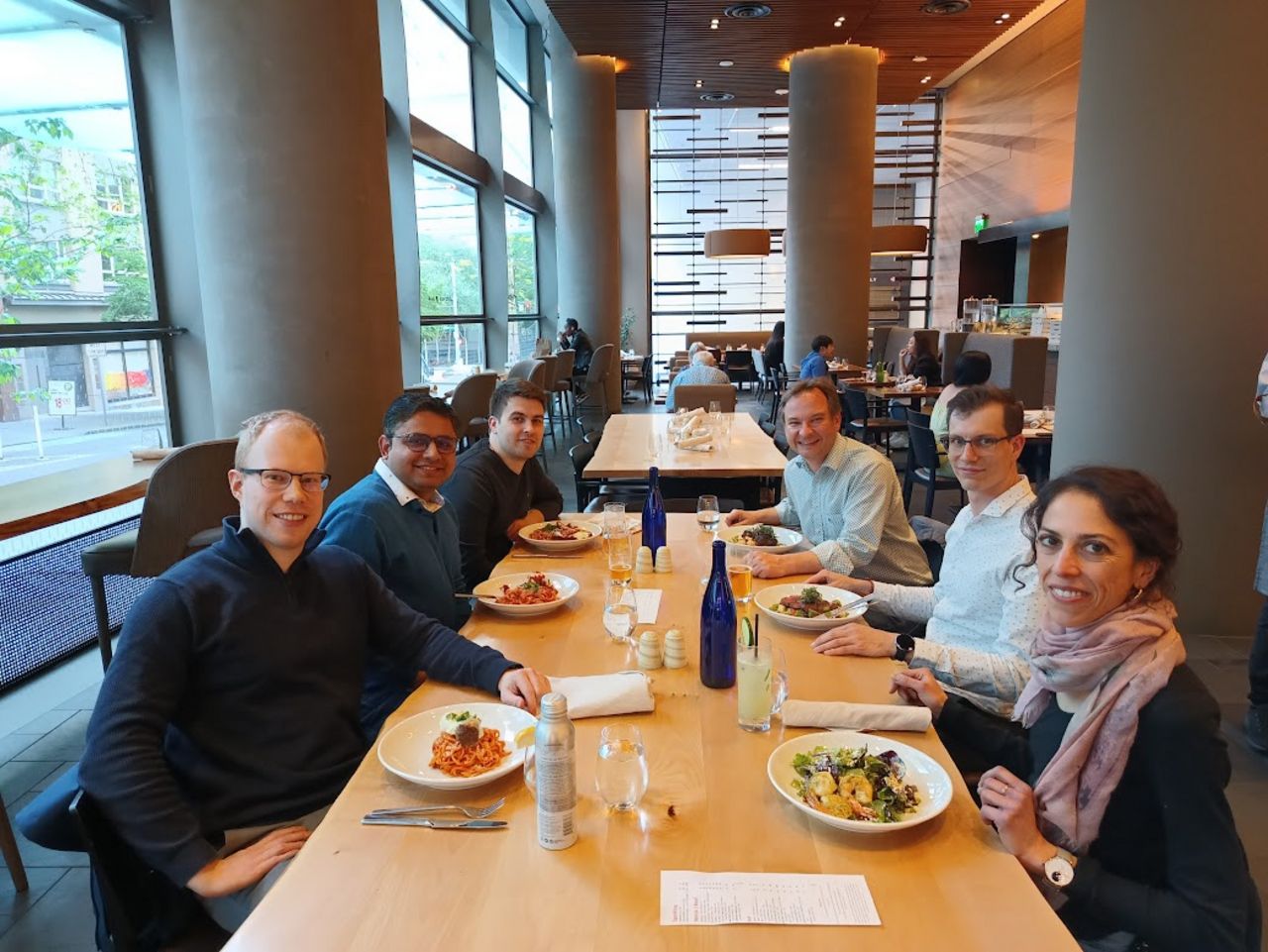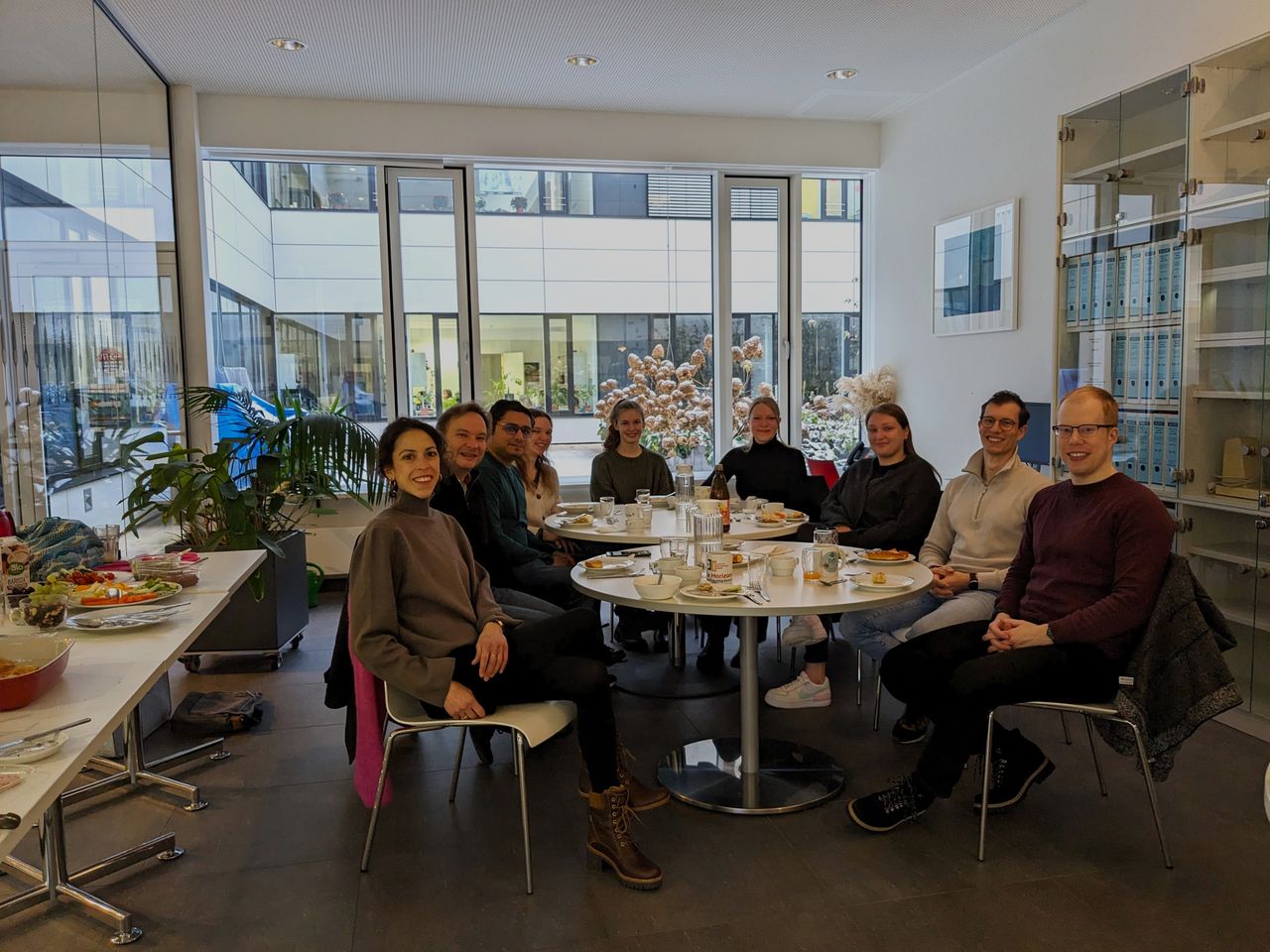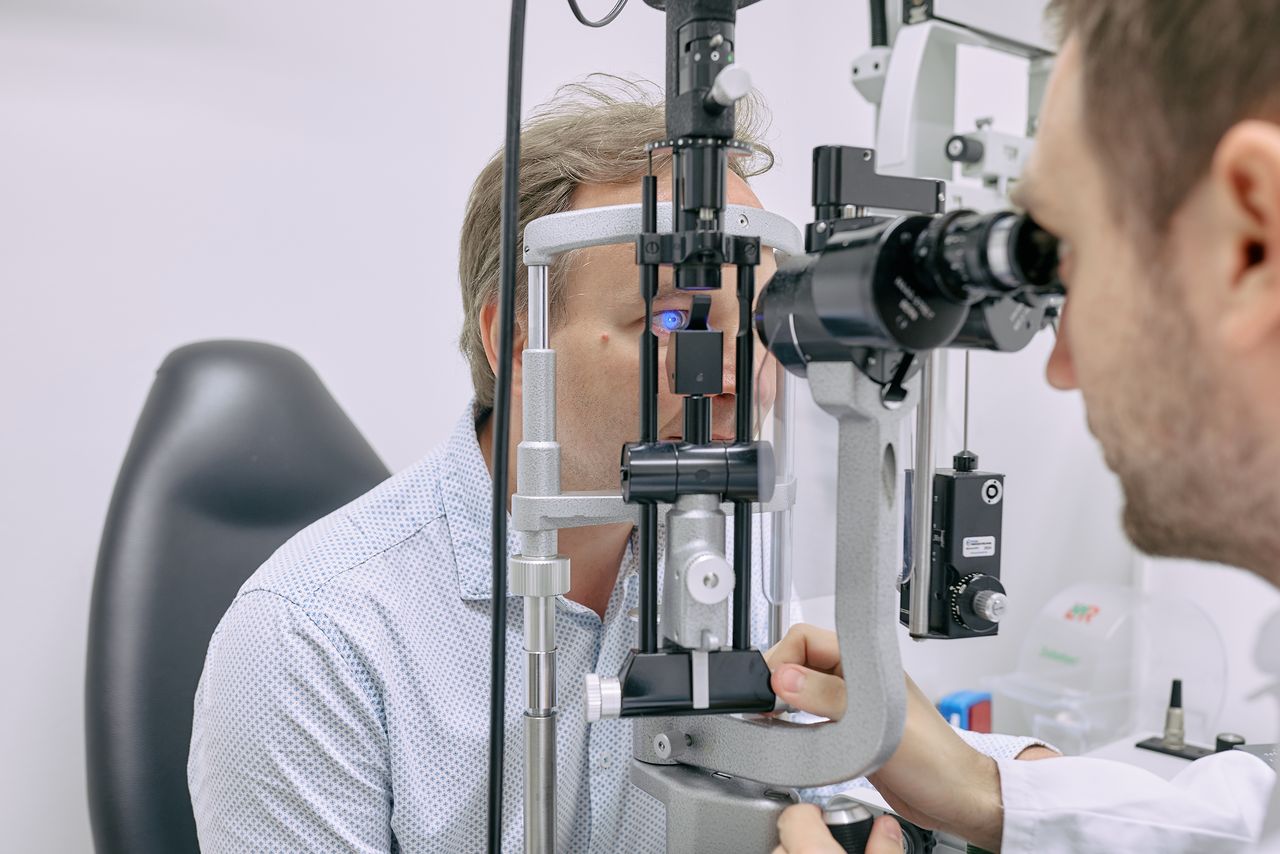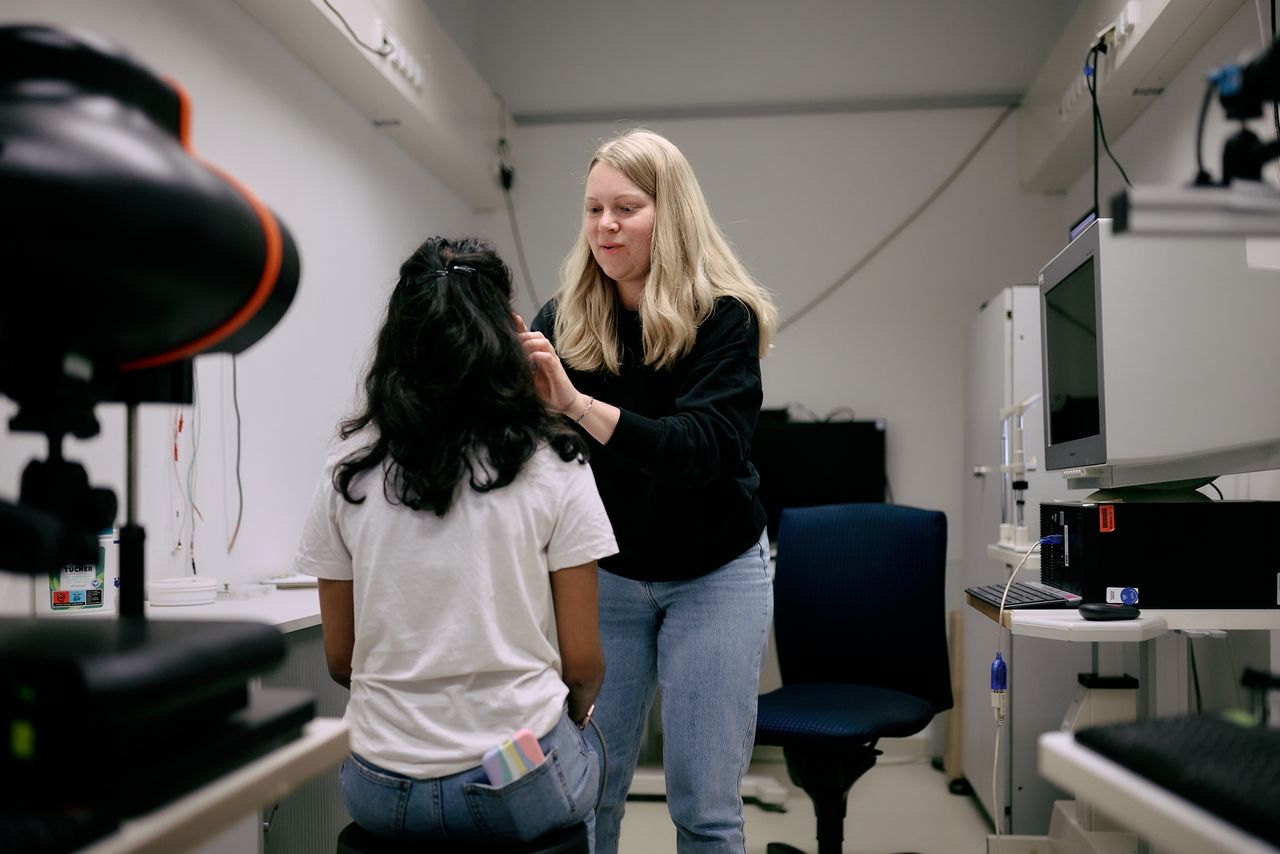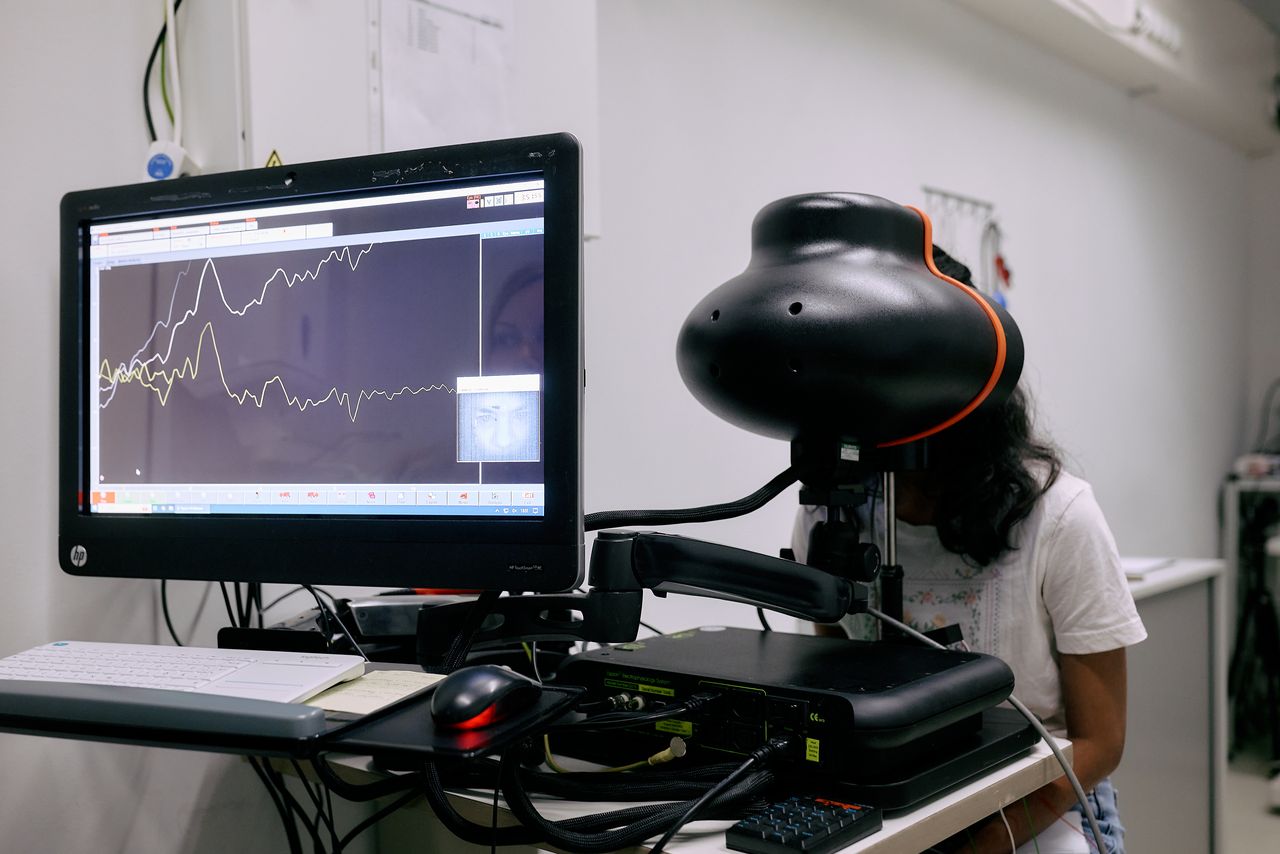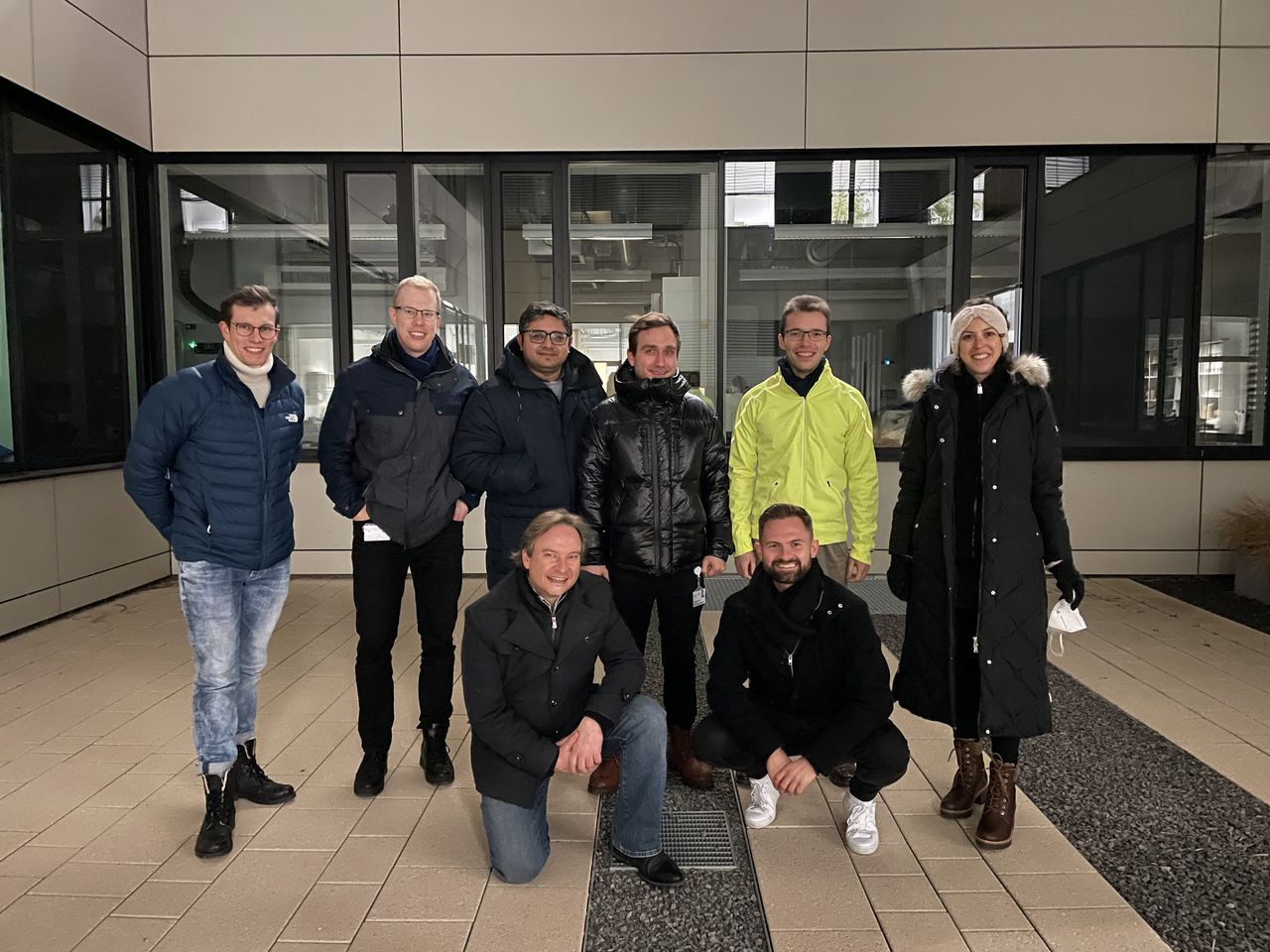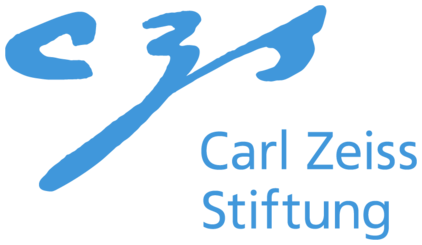Applied Vision Research
Our group performs basic and applied research in vision science and investigates healthy and visually impaired eyes in humans, aiming for improvement of current methods of detection and treatment. We have a special interest in visual function testing and in the research fields of presbyopia and myopia.
We are a multidisciplinary scientific team with expertise in the fields of vision, optometry, ophthalmic optics, computer science, and engineering. Our research projects are performed in close collaboration with other groups of the Institute for Ophthalmic Research and the University Eye Hospital Tübingen, with the possibility to access and integrate personnel and instrumental resources. Moreover, we have already established cooperating projects with industrial partners and research laboratories of other national and international universities and are open for further collaborations.
Methods we employ in our investigations, are, amongst others, electrophysiology, optical coherence tomography, eccentric infrared photorefraction, pupillography, and psychophysical tools. We further deploy computer science, statistics, and artificial neural networks to analyze and make use of biomedical data in order to design tests for visual disorders, develop software for clinical application, and alleviate life with visual disabilities.
In our main project “Maintaining Sharp Vision Even In Old Age” we aim to develop novel wireless, neuronally controlled contact and intraocular lenses that imitate the natural accommodation ability of the young eye, thus addressing widespread presbyopia.
The project is funded by the Carl Zeiss Foundation “Breakthroughs at Universities 2020: Intelligent Solutions for an Aging Society”, the University of Tuebingen, the Medical Faculty of the University of Tuebingen, and the Centre for Ophthalmology at the University of Tuebingen.




